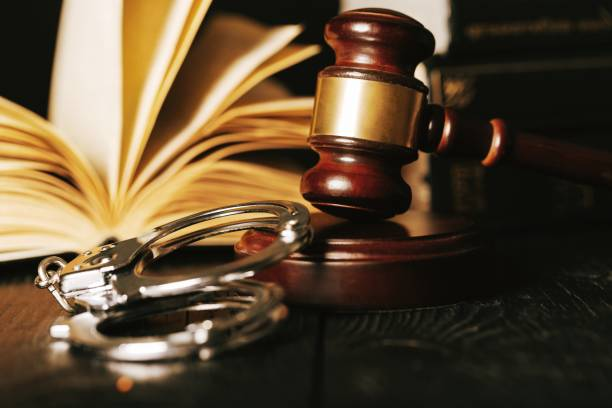This article will take a closer look at citizens arrest in Australia. We will discuss the following points:
- legal requirements,
- consequences of making an unlawful citizen’s arrest, and
- examples of citizen’s arrests that have taken place in Australia.
Have you ever witnessed a criminal act? Did you feel the urge to do something but didn’t know what? Well, you may be in luck. In Australia, citizens have the right to make a citizen’s arrest under certain circumstances.
A party makes a citizen’s arrest when they witness a crime occurring and no police officer is available to detain alleged offenders. This is also the case for an offence involving interference with, damage to or destruction of property. Furthermore, there are several legal requirements for a citizen’s arrest to be lawful.
The Legal Basis For Making A Citizen’s Arrest In Australia
Section 100 of the Law Enforcement (Powers and Responsibilities) Act 2002 (NSW) sets out the circumstances in which a person other than a police officer may make a citizen’s arrest:
1. A person (other than police forces) may, without a warrant, arrest a person if—
- the person is in the act of committing an offence under any Act or statutory instrument
- the person commits any such offence
- the person commits a serious indictable offence for which the person has not been tried.
2. A person who arrests another person under this section must, as soon as is reasonably practicable, take the person and any property found on the person before authorised officers to be dealt with according to law.
Laws in Other States
Section 271 of the Criminal Law Consolidation Act 1935 (South Australia) grants arrest powers to a person in South Australia. In Victoria, this power can be found in section 458 of the Crimes Act 1958.
Examples of Situations of a Lawful Citizen’s Arrest
Here are some examples of situations where a person may be able to make a citizen’s arrest:
- If you see someone committing a robbery, you may be able to make a citizen’s arrest if you have reasonable grounds to believe that the person has committed an indictable offence and that they are about to escape.
- If you see someone attacking another person, you may be able to make a citizen’s arrest if you have reasonable grounds to believe that the person has committed an indictable offence and that it is necessary to arrest them to prevent them from committing further offences.
Importantly, section 100 does not give a person the right to use excessive force to make this kind of arrest. However, under section 231, any other person who exercises power to arrest another person may use such force as is reasonably necessary. This is to make the arrest or to prevent the person’s escape after arrest.

Christie v Leachinsky [1947] 1 All ER 567
In Christie v Leachinsky [1947] 1 All ER 567, the House of Lords considered the legal requirements for making a citizen’s arrest in England and Wales. The case involved a man named Christie, who a group of people had arrested for stealing a car. Christie argued that the arrest was unlawful because the people who arrested him did not have reasonable grounds to believe that he had committed an indictable offence.
The House of Lords held that the people who arrested Christie had reasonable grounds to believe he had committed an indictable offence. The court found that they saw Christie driving the car away from the theft scene, and that he had refused to stop when challenged by the people who arrested him. The court also found that Christie had been carrying a knife during his arrest.
The House of Lords’ decision in Christie v Leachinsky established the following legal requirements for making this kind of arrest in England and Wales:
- The person making the arrest must have reasonable grounds to believe that the person they are arresting has committed an indictable offence.
- The person making the arrest must believe that the person they are arresting is about to escape or that it is necessary to arrest them to prevent them from committing further offences.
- The person making the arrest must use reasonable force to effect the arrest.
- The person making the arrest must take the person they have arrested to the nearest police station as soon as practicable.
The Consequences Of Making An Unlawful Citizens Arrest In Australia.
The consequences of making an unlawful arrest in Australia can vary depending on the case’s specific circumstances. However, some of the potential consequences include:
- Civil liability. The person arrested can sue the person who made the unlawful arrest for damages, such as pain and suffering, emotional distress, or medical expenses.
- Criminal charges. The person who makes the unlawful arrest can face a criminal charge such as assault, false imprisonment, or kidnapping.
- Loss of employment. If the person who made the unlawful arrest is employed in a position where they must uphold the law, such as a security guard or a teacher, they could be fired.
- Damage to reputation. The person who made the unlawful arrest could suffer damage to their reputation, making it difficult to find future employment or housing.
How Does The Court Determine The Legality of a Citizens Arrest?
The court determines the legality of citizen’s arrests in Australia by considering the factors established by the court in the case of Christie v Leachinsky [1947] 1 All ER 567.
If the court finds that the person making the arrest met all these factors, the arrest will be considered lawful. However, if the court finds that the person making the arrest did not meet one or more of these factors, the arrest for the detained person will be considered unlawful.
In some cases, the court may also consider other factors, such as:
- the person’s age,
- experience, and
- the circumstances surrounding the arrest.
For example, let’s consider that the person making the arrest was a young child. Or someone who has never made this kind of arrest before. Then the court may be more likely to find that the arrest was lawful.
What Do Police Officers Say About Citizen’s Arrest?
Generally, the police in Australia support the right of citizens to make a citizen’s arrest in certain circumstances. However, they also caution that citizens should only make this kind of arrest if they are sure that they are arresting someone who committed a crime. This should be backed with criminal evidence. Moreover, it must be necessary to arrest to prevent the person from escaping or committing further offences.
The police also emphasise that citizens should only use reasonable force to make such an arrest and that they should take the person they have arrested to the nearest police station as soon as practicable.
If the police find the arrest lawful, they may commend the citizen for their actions. However, if the police find the arrest unlawful, they may charge the citizen with a crime, such as assault, false imprisonment, or kidnapping.

Know More About Citizens Arrest
If you want a wider understanding of citizen’s arrest, contact a lawyer to help you. A lawyer can:
- Explain the legal requirements for making a citizen’s arrest. The lawyer can explain to their client that in Australia, a citizen can only make an arrest if they have reasonable grounds to believe that the person they are arresting has committed an indictable offence.
- Explain the consequences of making an unlawful citizen’s arrest. If the client makes an unlawful arrest, they could face a criminal charge such as assault, false imprisonment, or kidnapping. They can also explain that the citizen could be sued by the person they arrested for damages, such as pain and suffering, emotional distress, or medical expenses.
- Advise their client on whether or not it is advisable to make a citizen’s arrest in a particular situation. The lawyer can advise their client on whether or not it is advisable to make an arrest in an individual situation, taking into account the specific facts and circumstances of the case.
If you want to know more about this kind of arrest, don’t hesitate to reach us at JB Solicitors. We can assist you with your legal needs. Contact us today.
